Collaborative RPG Project ORCS is the future I dreamed of when I started using Roll20 to play D&D
A brilliant marriage of TTRPG and CRPG.
I have been plagued with bad rolls throughout my many years playing tabletop RPGs, and this curse has now followed me into videogames. But in the case of Lightforge Games' collaborative RPG, currently known as Project ORCS, the bad rolls often spawn the most entertaining consequences. Case in point: a botched attempt to thwart an arcane ritual that left my party to deal with an out-of-control lich. Half an hour later, however, the undead monstrosity would become a fixture of my group's base, magically linked to a dagger carried by our blacksmith. A pet lich. I'm sure everything will be fine.
When I interviewed Lightforge Games CEO Matt Schembari last year, the pitch sounded like it could capture the best parts of TTRPG, even moreso than the phenomenal Baldur's Gate 3. And now, having spent an hour with Project ORCS, I'm pretty convinced.
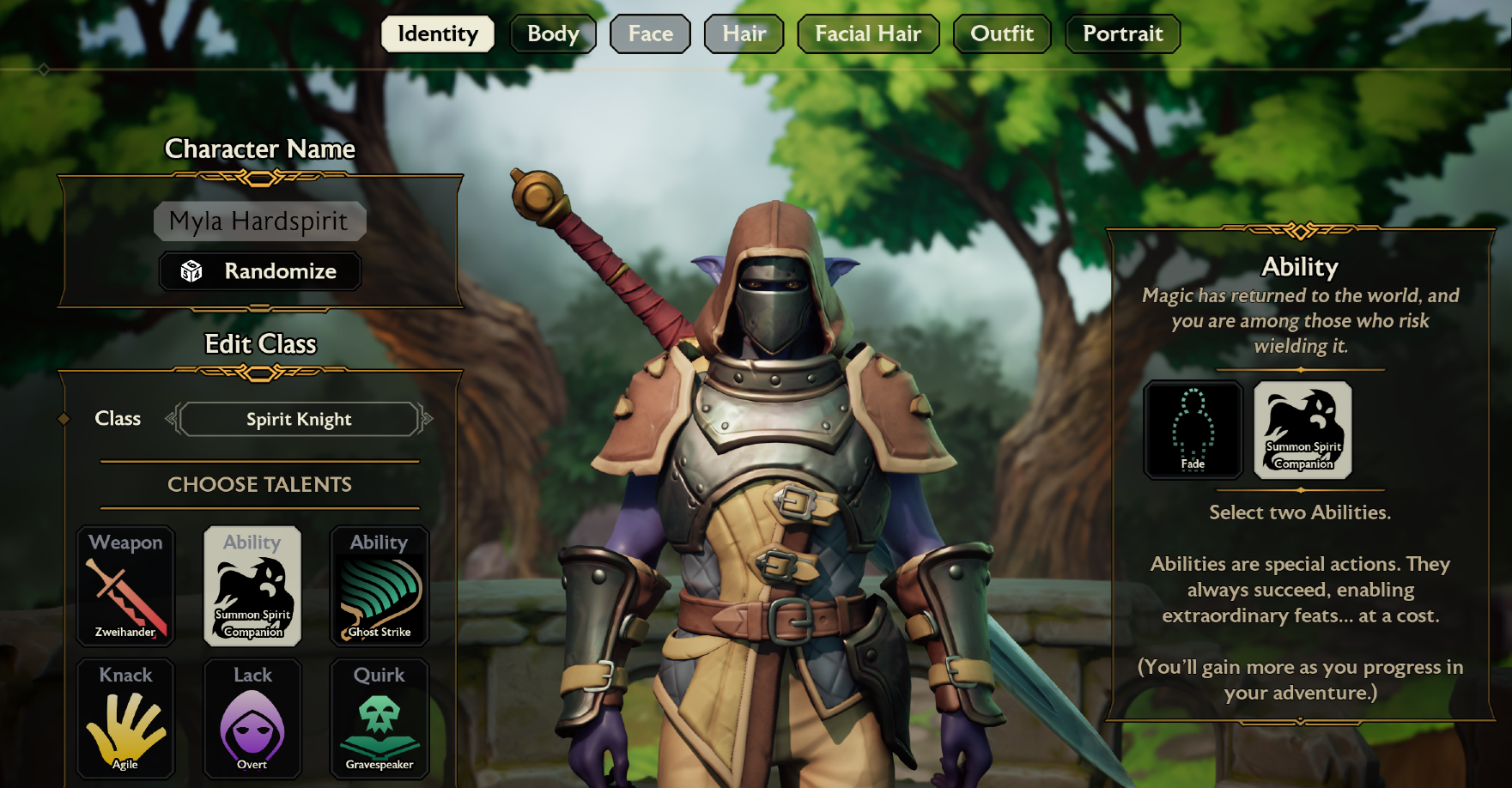
The arrival of the aforementioned lich in the middle of our fight was the product of a collaboration between myself and Schembari, who was playing the role of the group's guide, Project ORCS' take on a GM. Even more than in your typical tabletop RPG, conversation drives everything. And this starts almost right away. Logging into Schembari's server, I quickly made my character and jumped into the party: a trio of adventurers, and our guide. To kick off our adventure, Schembari got us to introduce our characters (a process which will eventually be assisted by prompts) and then pick an adventure.
Both of the adventures on offer would let us upgrade NPCs in our safehold, either our blacksmith or sage, and after a quick chat the group decided that access to better weapons would be a major boon. As the party headed off into the wilderness we only had a skeletal framework, where we were on a rescue mission, but prompts and collaboration promised to fill it in. On the map screen, a series of potential challenges were offered to us, as well as various possible approaches. After more discussion and a round of voting, the adventure started to take shape: we'd rescue our blacksmith from the clutches of some cultists, and we'd employ stealth to get the better of them.
These prompts exist to assist parties rather than locking them into prefabricated scenarios, so while we decided we'd encounter a cult and sneak up on them, it was up to us to both create the scene and play it out. Guides can create scenes full of NPCs and props ahead of time, but in this instance we arrived in an empty forest clearing and, as a group, built up the scene ourselves. I plonked down a large altar, which Schembari then surrounded with cultists and skeletons. Each NPC can be edited, from their abilities to their gear, and though we had only set aside an hour to play, the party convinced Schembari to give all of them unique names. Who wants to beat up a generic skeleton when they could instead be fighting a lad known as Bob Bones?
RPG builder
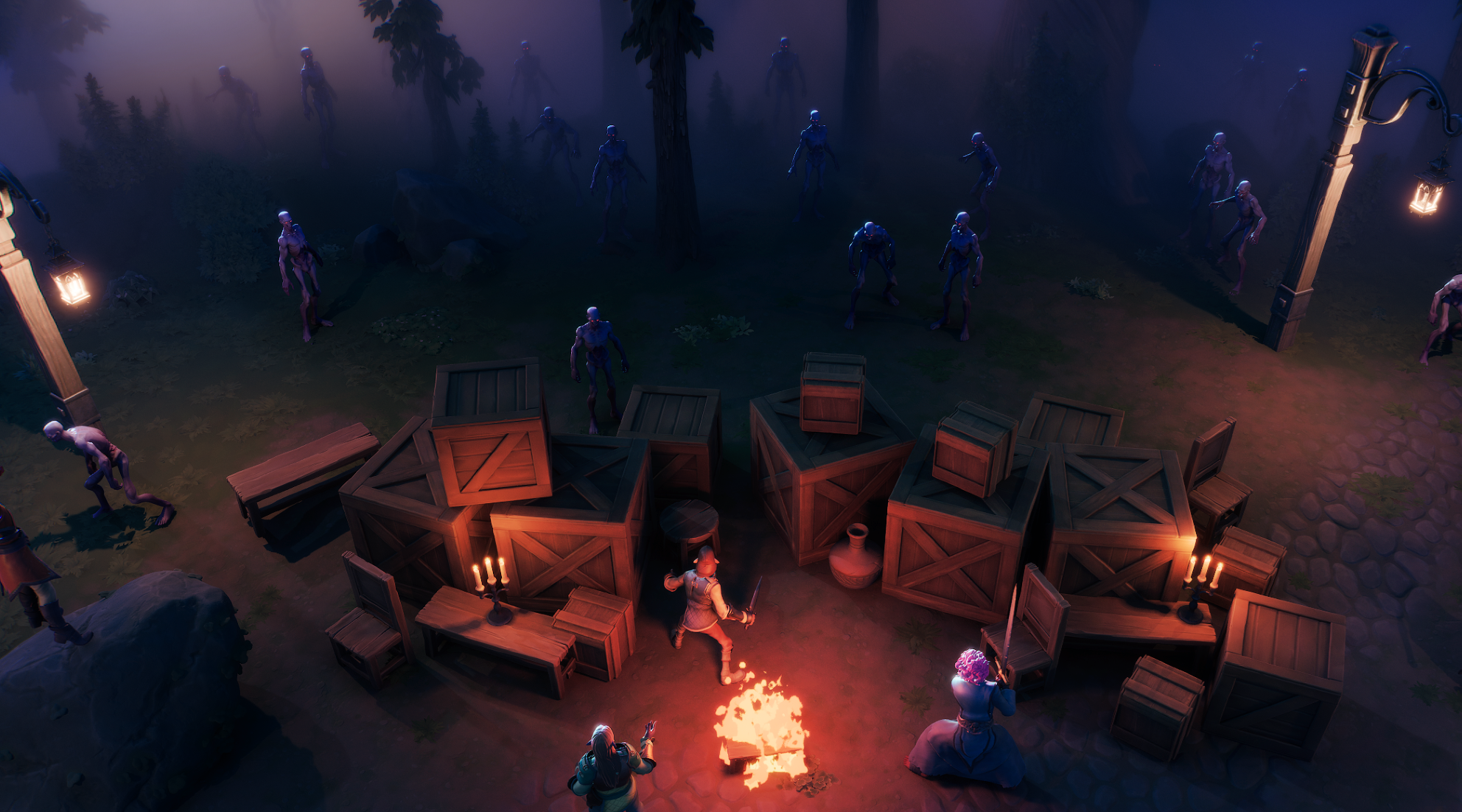
In only a few minutes we had transformed the space. Instead of an empty clearing with the sun beaming down on it, now we had an appropriately spooky location full of props and foes. For some reason I also felt compelled to include a cute family of rabbits. Why not? The time of day was also changed to night, because cultists never perform creepy rituals when the sun is up.
With the scene set, the adventure could begin. Hiding behind a wall and shrouded in darkness, we could see the cultists getting up to no good, but we also clocked a little furry creature, a cubling, who looked like a cross between an ewok and a furby, who was also sporting some nifty goggles. We beckoned him over to have a brief chat (I primarily wanted to steal his goggles), during which he directed our gaze to something near the cultists. My first roll!
Keep up to date with the most important stories and the best deals, as picked by the PC Gamer team.
I was performing a find check, but as previously mentioned: my rolls are cursed. In Project ORCS, most of your rolls will succeed to a degree, however, so even if you roll poorly, you can still do what you were trying to do, but with an additional negative consequence—a bane. Similarly, if you roll very well, you can get a boon. And when this happens, you can pick between a couple of different options, and then flesh out the consequences properly with the guide. In my case, the roll was so bad that it was an unmitigated failure, but I was still able to choose how things went wrong. I was unable to see what our new friend was pointing at, and thanks to the bane that I picked I instead encountered something unpleasant: a pack of wolves who had been sneaking up on us.
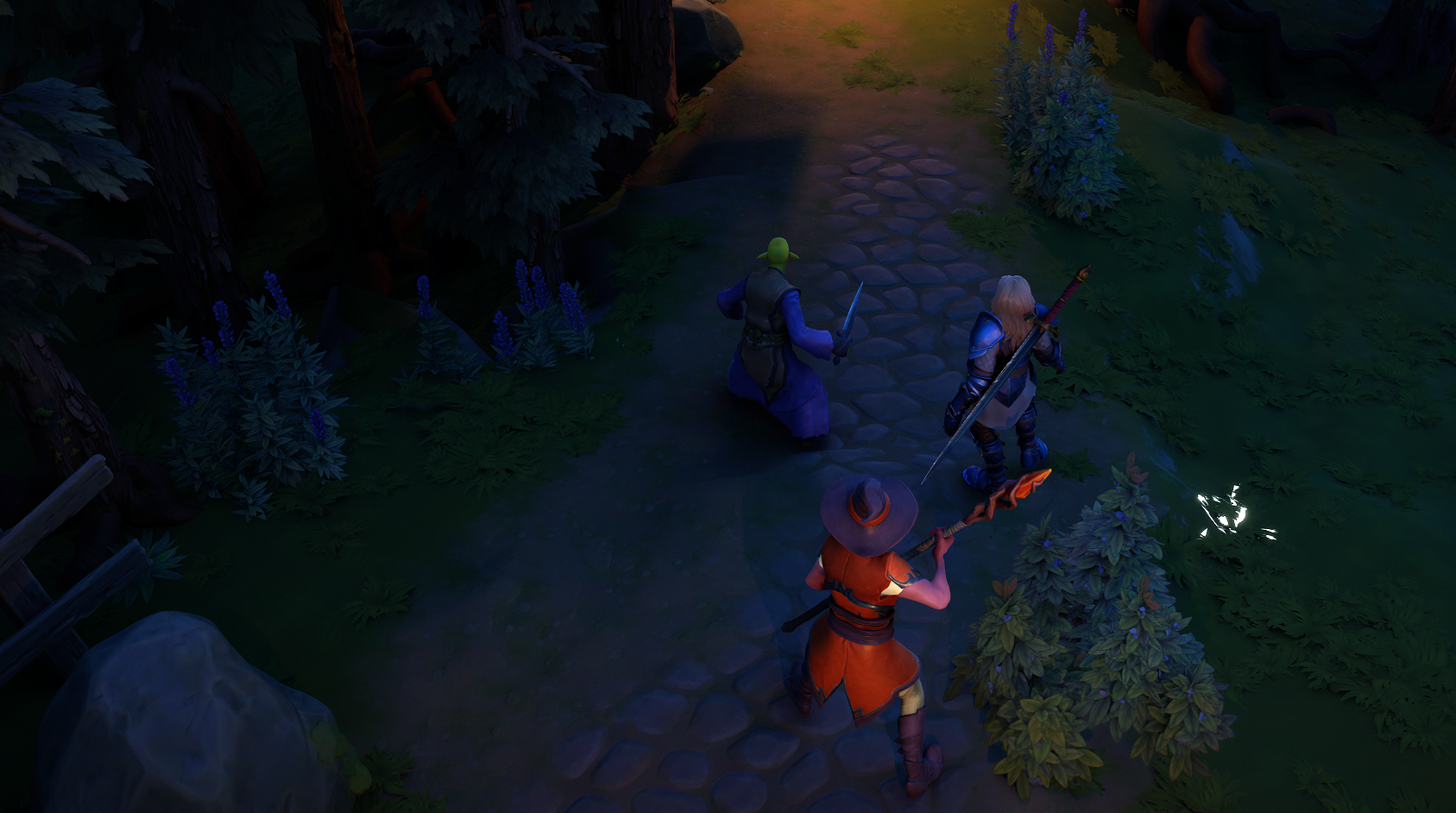
Again, the bane prompt left the specifics up to us: it was the party that agreed something like a pack of wolves would be fitting. Schembari quickly summoned the pack, and then increased the size of its leader, creating a dire wolf. But what could have been our first fight instead became another friendly chat. One of my adventuring pals decided to sway the wolves, but they had a disadvantage: their 'repulsive' character trait. This should have been a negative modifier, but Schembari felt that, in this case, it would actually be an advantage, intimidating the wolves, so he flipped the modifier, emphasising the benefit of having a flexible, human GM over hard, scripted rules.
All of the interesting quirks of Project ORCS are present in fights.
The wolves, now our allies, charged towards the cultists, with the party following behind them. While Project ORCS plays out in real-time outside of combat, when the swords and spells come out, it slips into a turn-based structure.
All of the interesting quirks of Project ORCS are present in fights. So when an attack roll is pretty low, your attack can still be successful, but you also need to pick a bane. Maybe you'll draw some unwanted attention, or find yourself unable to use magic for a turn. I wasn't too keen on wading into the middle of the scrum, since I was a cloth-wearing arcane rogue known as a Voidgaze Hunter. Instead, I asked Schembari if I could turn the cultists' ritual against them.
Enter the lich
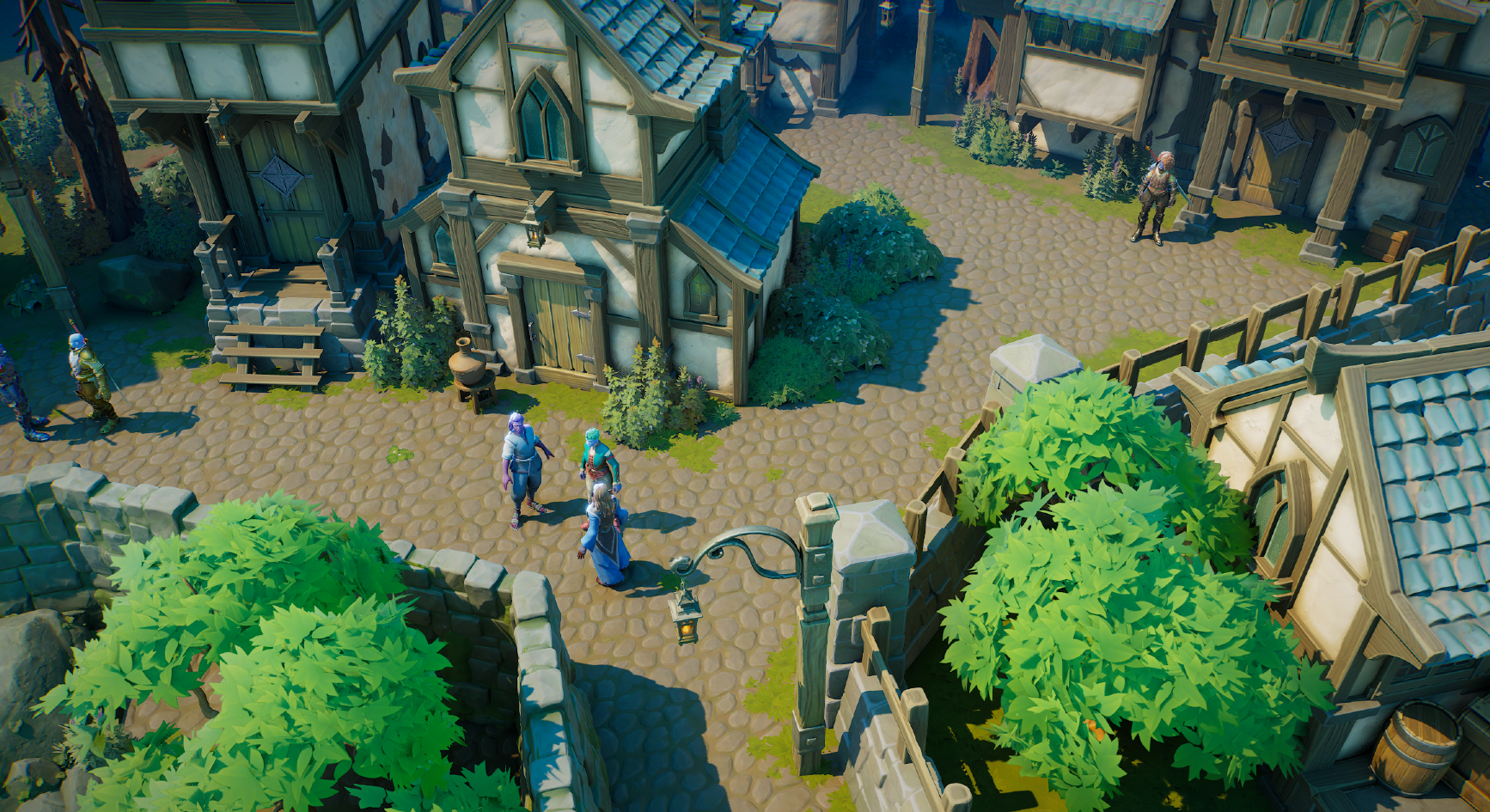
Essentially, I had to pitch my plan, where I'd awaken whatever creature was lying in the sarcophagus, which was key to the ritual. So I'd disrupt the ritual, and maybe bring the mystery creature onto our side. Then it was time to roll. To modify the roll, I was able to select a Triumph Token, which I'd earned from an earlier success.
Even with my token, my roll wasn't an unmitigated success. I had to pick another bane. The result was that my attempt to disrupt the ritual and summon the resident of the sarcophagus was only half-done. Enter the lich. Instead of joining our side, this undead nasty decided to side against everyone, murdering one of the wolf pups before bearing down on one of the cultists' skeleton pals.
We wouldn't be enemies for long, though. On my next turn, before attacking anyone, I decided to sway the lich. I was the one who freed him, after all. Not leaving anything to chance, I used another token, as well as another modifier that spent some of my magical reserves while increasing my corruption—more on that in a bit. Thankfully this was not a waste, because I succeeded and got a boon, talking the lich into coming over to our side where he'd make an extra effort to slay our foes. To finalise the deal, he consumed a cultist standing next to him. It's always nice to make new friends.
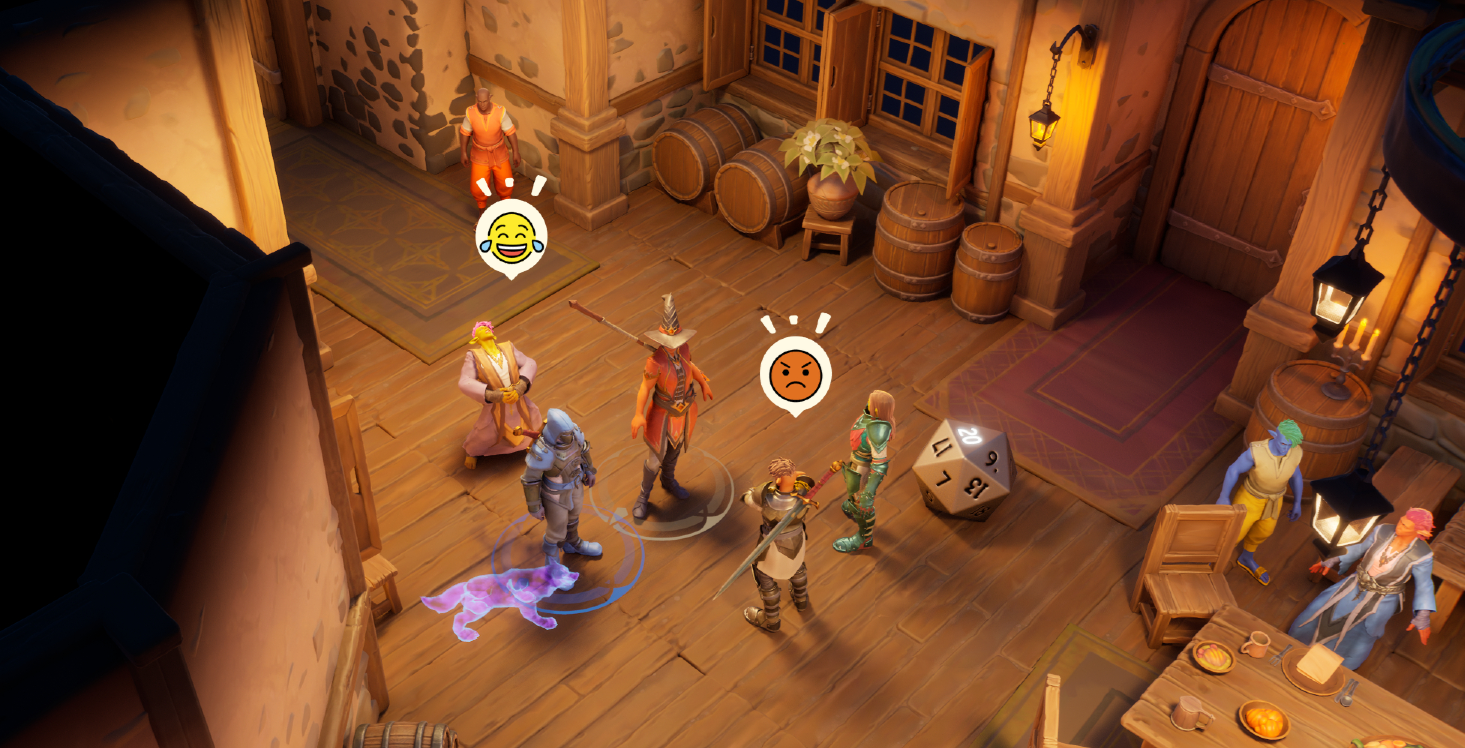
I then moved in to attack another cultist myself, selecting my Void Strike attack. It's a risky move because it also increases corruption, which had already happened once on this turn. Honestly, I just wanted to see what would happen, and I got my wish. The attack was partially successful, but I was corrupted. That meant it was time to decide how I'd been cursed. Would I be jinxed, where my very touch would cause things to break? Or would I accept a wasting curse, reducing my ability to move, fight and endure? The latter seemed more dramatic, and I do love me some drama, so I naturally went with that. To emphasise the impact of my curse, Schembari went into my character stats and dropped my weight "way down", making me all skin and bones.
To emphasise the impact of my curse, Schembari went into my character stats and dropped my weight "way down", making me all skin and bones.
The battle ended when the lich killed off the final cultist, but we still had a problem: we'd freed a lich, and the blacksmith, who we'd been trying to rescue, was not particularly happy that we'd unleashed this evil upon the world. Another sway attempt was necessary, and thank goodness for my silver tongue. I managed to talk the blacksmith into letting us actually complete the ritual, which would bind the lich to a dagger. The blacksmith didn't fully trust us, though, and only agreed to the plan if he was able to keep the dagger himself. I acquiesced. Maybe he'd let me borrow it later.
With the quest completed, we returned to the safehold with our pet lich, pet wolves and pet blacksmith. The quest also levelled up the blacksmith, giving us some more options when hitting him up for more gear. The wolves and lich, meanwhile, didn't come with any baked in utility, instead serving as narrative constructs, leaving it up to the party and guide to determine how to use them. So we could bring them on our next adventure as allies, for instance. But Lightforge is also experimenting with some AI features, which could potentially allow NPCs like the lich to start offering quests or some other functionality.
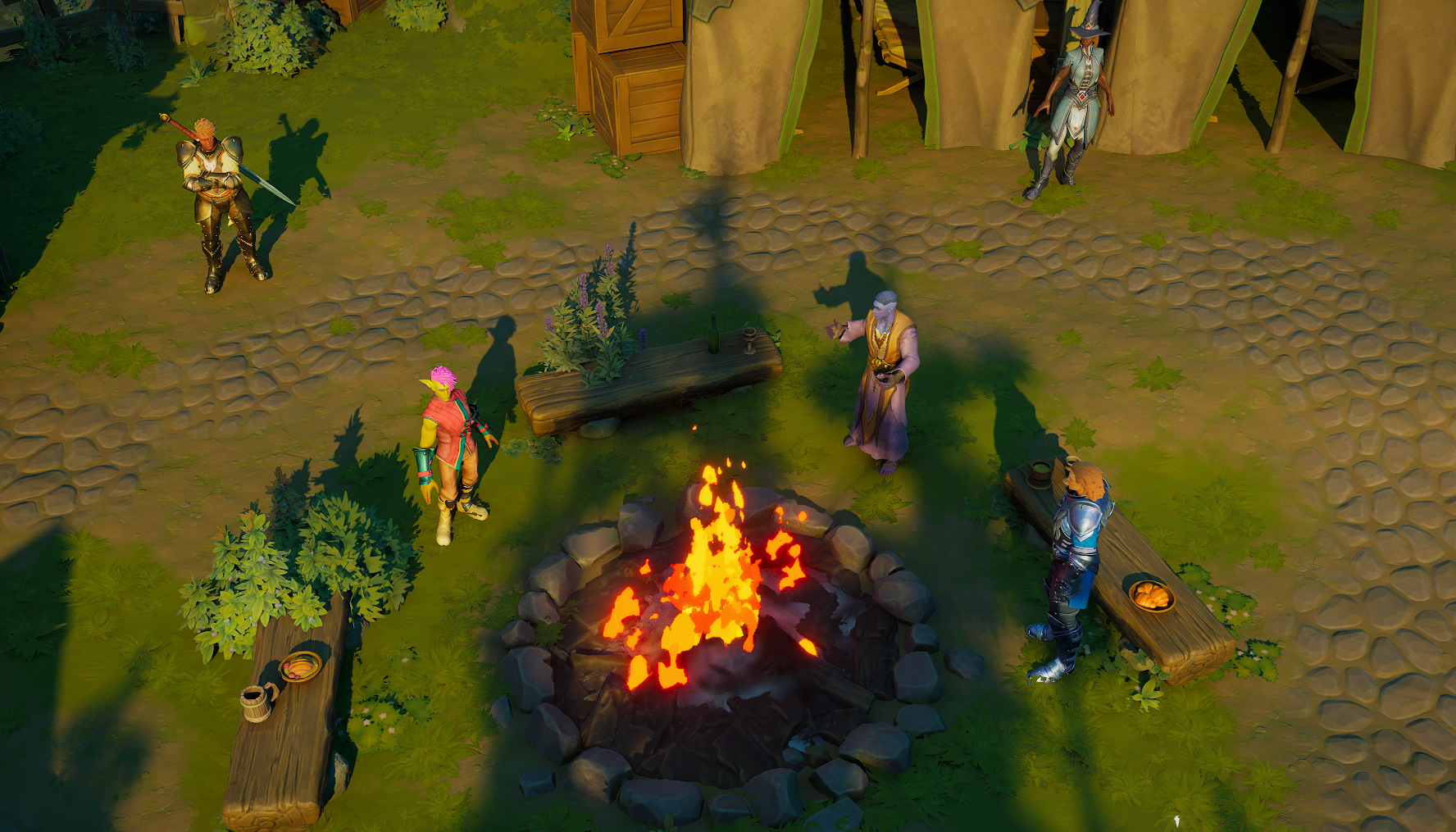
What I really appreciated was how this one quest allowed us to make progress along multiple paths. So our characters naturally gained some XP that would allow us to select new talents, we now had a wee army of allies willing to aid us, and we'd been able to develop our safehold by rescuing and empowering the blacksmith. The creation tools also have a progression system. So you start off with a basic suite of options, but as you go on quests you can unlock more props, NPCs and enemies. One of the benefits of this system is that it means you won't be overwhelmed with options during those early quests, making crafting them a much quicker process.
I'd been wondering if the collaborative storytelling process might remove some of the surprises that are normally inherent in TTRPGs. If we're all building the quests together with prompts and discussing everything from the challenges we'll face to the consequences of our actions, would it feel like we were just going through a script? I was pleased to discover that it didn't feel like that at all. The quest did not go the way I expected it to, and I was constantly coming up with ideas on the fly, which both my party and our guide needed to react to. Project ORCS fully embraces the spirit of improv, with all the prompts just giving you a framework to play with.
Project ORCS is expected to hit early access this year, but you'll also be able to get a taste of it today and tomorrow during a series of livestreams hosted by the developer.

Fraser is the UK online editor and has actually met The Internet in person. With over a decade of experience, he's been around the block a few times, serving as a freelancer, news editor and prolific reviewer. Strategy games have been a 30-year-long obsession, from tiny RTSs to sprawling political sims, and he never turns down the chance to rave about Total War or Crusader Kings. He's also been known to set up shop in the latest MMO and likes to wind down with an endlessly deep, systemic RPG. These days, when he's not editing, he can usually be found writing features that are 1,000 words too long or talking about his dog.

